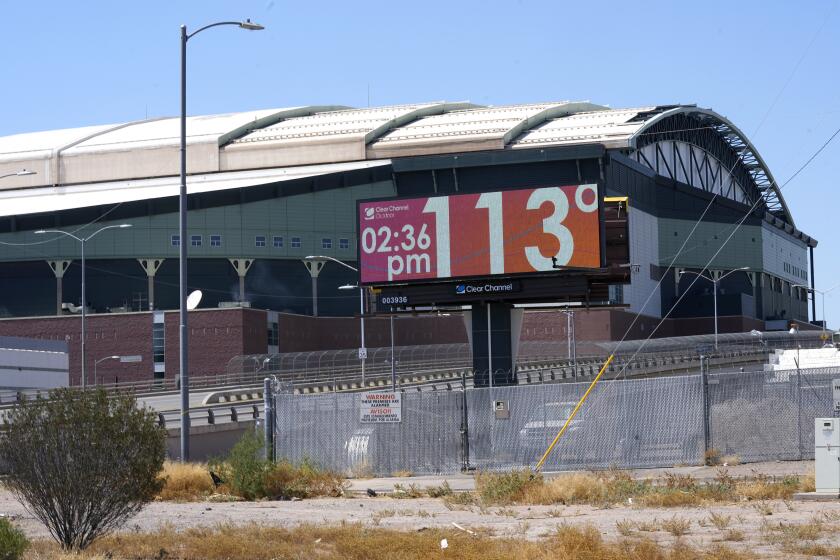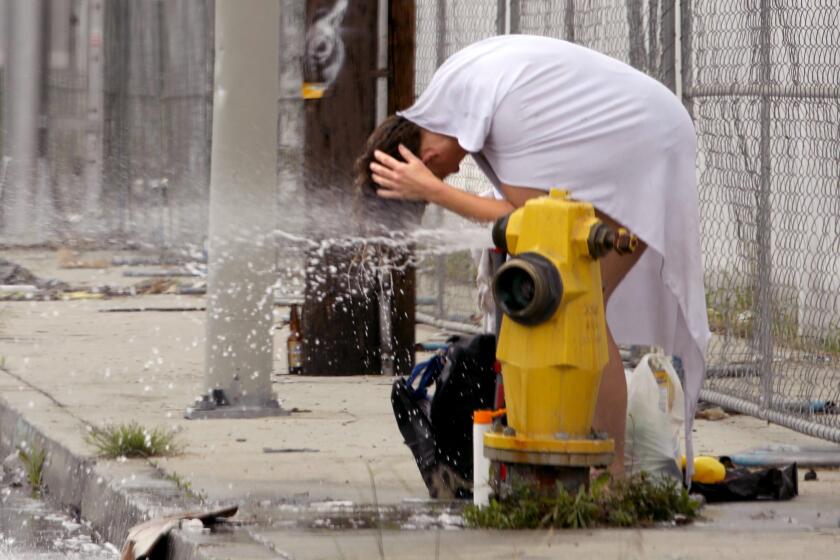Judge Threatens DWP Sanctions Over Owens River Flow
After chastising the Los Angeles Department of Water and Power for “piddling around,” an Inyo County Superior Court judge ruled Friday that the agency should face sanctions for missing a series of deadlines to restore a 62-mile stretch of the Lower Owens River.
“It appears that DWP needs the threat of immediate sanctions before it gets busy” on the restoration effort, Judge Lee E. Cooper said.
Proposed sanctions will be considered at a hearing scheduled for July 25. They could include a fine or limitations on the DWP’s pumping of Owens Valley groundwater to Los Angeles.
Such limits could cost about $7.5 million a year, roughly the amount that Los Angeles saves annually by delaying the Lower Owens River Project.
DWP officials said they would have no comment until they reviewed Cooper’s written decision.
A lawsuit brought two years ago by the California Department of Fish and Game, the California State Lands Commission, the Sierra Club and the Owens Valley Committee accused the DWP of deliberately missing deadlines for implementing the project, which would cost about $39 million to launch.
The project is more than two years behind schedule.
DWP officials, however, have insisted that the delays have been the result of circumstances beyond their control.
Cooper dismissed that argument Friday, saying that if the agency “had not piddled around trying to play bureaucratic games” with federal environmental authorities and other groups, “it could have complied with the order.”
The river was reduced to a nearly dry channel in 1913 when the Owens River Aqueduct began delivering water to Los Angeles.
A second system, the so-called Second Los Angeles Aqueduct, opened in 1970.
The Lower Owens River Project was conceived in 1991 as mitigation for excessive groundwater pumping by the DWP that destroyed 100 acres of habitat in the Owens Valley from 1970 to 1990.
In what stood to be the largest river rehabilitation effort in the West, the DWP promised environmental groups and Inyo County residents to return a steady flow to the river by diverting aqueduct water to provide habitat for native game and fish and to revive stands of cottonwoods and willows.
In exchange, the DWP would be allowed to continue to pump groundwater -- a major source of Los Angeles’ drinking water -- and recover some of the aqueduct water it put back into the river.
In 1997, the DWP agreed to restore flow in the river by mid-2003. That deadline was pushed back to 2004. Then, under a court stipulation, the DWP promised to commence flows by this Sept. 5.
Now, the department says it cannot meet that deadline either.
Cooper angrily suggested that the postponements were a legal tactic described by Gerald Gewe, the DWP water system’s chief operating officer, at an environmental law conference in Yosemite six years ago.
Gewe, Cooper said, “bragged about the amount of money and water DWP saved by litigation delay.”
“DWP now responds that it’s not in business to make a profit ... and that its officers do not benefit financially from such a policy,” Cooper said. “Be that all as it may, saving money and water benefits the city and makes the officers look good for whatever benefits they bring.”
Greg James, a consultant and attorney for Inyo County, said he was “surprised the court came off as strongly as it did.”
“But it’s great,” he added. “I think this river will be actually flowing sooner rather than later.”
Don Mooney, attorney for the Owens Valley Committee, also expressed high hopes for the river.
“It confirms what we have been saying for years about how Los Angeles has handled this project,” he said. “There is no incentive for them to do this, save for a court telling them to do it. Now.”
Mooney added, “If they don’t, they’ll have to answer to Judge Cooper.”
More to Read
Start your day right
Sign up for Essential California for news, features and recommendations from the L.A. Times and beyond in your inbox six days a week.
You may occasionally receive promotional content from the Los Angeles Times.







